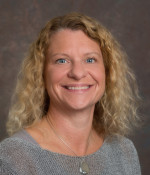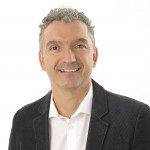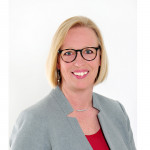Ottawa 2024 - Program
Conference Programme
Friday, 9 August 2024
|
12.30pm |
Conference Welcome Chairman Opening Remarks |
Ron Schenk |
|
1.00pm – 2.30pm |
Plenary Session I: The Burden of MSK Disability |
Greg Lynch, Moderator |
|
|
Introduction |
Greg Lynch |
|
|
Burden of MSK – why are we not paying attention and is |
Jan Hartvigsen |
|
|
How can we provide high-value care for our patients? - The role of a Phenotype-Based diagnosis in Musculoskeletal rehabilitation |
Yannick Tousignant-Laflamme |
|
|
If we are not part of the solution, then.… |
Richard Rosedale, Hans van Helvoirt |
|
|
Session Review |
Greg Lynch |
2.30pm – 3.00pm Afternoon Tea
|
3.00pm – 4.30pm |
Parallel Sessions I (Attendees choose one) |
|
|
|
Pain: Musculoskeletal Pain Management |
Yannick Tousignant-Laflamme, Nicolas Naiditch and Faculty |
|
|
Better together: Utilizing Therapeutic Alliance |
Dr. Paolo Sanzo and Faculty |
|
|
Patient Demonstrations |
Facilitators: Margaret Campbell, Jane Borgehammar, Jose Liberato and Colin Davies. |
4.30pm – 4.45pm Rotation Break
|
4.45pm – 6.15pm |
Plenary Session II: Beyond the Spine |
Yvonne Body, Moderator |
|
|
Introduction |
Yvonne Body |
|
|
Tendinopathy: If one size fits all is out, then what? - Lessons learned from our Achilles tendinopathy research |
Karin Grävare Silbernagel |
|
|
Treat your own Pelvic Floor |
Carolyn Vandyken |
|
|
Beyond Boundaries: Charting a Transformational Path in Optimal Patient Care through MDT Pelvic Classification. |
Di Wu |
|
|
Session Review |
Yvonne Body |
6.15pm – 8.00pm Conference Welcome Reception
Saturday, 10 August 2024
7.00am – 8:30am Breakfast for Registered Conference Attendees who are Registered Guests of the Westin Ottawa. Westin Breakfast Vouchers Required
|
8.30am – 10.00am |
Parallel Sessions II (Attendees choose one) |
|
|
|
Pain: Musculoskeletal Pain Management |
Yannick Tousignant-Laflamme, Nicolas Naiditch and Faculty |
|
|
Better together: Utilizing Therapeutic Alliance |
Dr. Paolo Sanzo and Faculty |
|
|
Patient Demonstrations |
Facilitators: Margaret Campbell, Jane Borgehammar, Jose Liberato and Colin Davies. |
10.00am – 10.45am Morning Tea
|
10.45am – 12.45pm |
Plenary Session III: International Tastings: Current MDT Research |
Audrey Long / Melissa Kolski, Moderators |
|
|
Introduction |
Audrey Long |
|
|
Research Presentations |
Hans van Helvoirt, Vicente Hennemann, Ron Schenk |
|
|
Clinical Cases |
Michael Post, Lan Lin Pu |
|
|
Education |
Yvonne Body, Hiroki Chiba |
|
|
Research Panel - Q & A |
Audrey Long |
|
|
Poster Blast |
Poster Presenters |
|
|
Overview of IMDRF |
Emily Slaven |
12.45pm – 2.15pm Awards Luncheon Buffet
|
2.15pm – 3.45pm |
Parallel Sessions III (Attendees choose one) |
|
|
|
Sports: Exercise is good for tendinopathy…but how to get my patient back to sports? |
Karin Grävare Silbernagel and Faculty |
|
|
Pelvic Health: The Pelvis and Beyond |
Carolyn Vandyken, Di Wu and Faculty |
|
|
MDT Beyond the Clinic |
Jason Ward, Michelle Miller and Stephen Klassen |
3.45pm – 4.00pm Rotation Break
|
4.00pm – 5.30pm |
Plenary Session IV: A head’s up on concussion |
Georg Supp, Moderator |
|
|
Introduction |
Georg Supp |
|
|
Let's Talk About Brains - A Clinically Informed Update on the Management of Concussion in the new Millennium |
Dr. Paolo Sanzo |
|
|
Sorting symptoms |
Margaux Lojacono |
|
|
When a concussion is not a concussion |
Dave Pleva / Brian Greer |
|
|
Discussion |
All speakers |
|
|
Session Summary |
Georg Supp |
There is no formally planned Conference Social Function, and we encourage attendees to make their own arrangements for the evening.
Sunday, 11 August 2024
7.00am – 8:30am Breakfast for Registered Conference Attendees who are Registered Guests of the Westin Ottawa. Westin Breakfast Vouchers Required
|
8.30am – 10.00am |
Parallel Sessions IV (Attendees choose one) |
|
|
|
Sports: Exercise is good for tendinopathy…but how to get my patient back to sports? |
Karin Grävare Silbernagel and Faculty |
|
|
Pelvic Health: The Pelvis and Beyond |
Carolyn Vandyken, Di Wu and Faculty |
|
|
MDT Beyond the Clinic |
Jason Ward, Michelle Miller and Stephen Klassen |
10.00 – 10.45 Morning Tea
|
10.45am – 1.00pm |
Plenary Session V: Future Innovations |
Hans van Helvoirt, Moderator |
|
|
Introduction |
Hans van Helvoirt |
|
|
Self-management: empowering patients to live better lives. |
Jan Hartvigsen |
|
|
Back to the future: Social factors affecting development and evolution of Failed Back Surgery Syndrome. |
Nicolas Naiditch |
|
|
Centralization 2.0: The Added Value of Digital Tools and Algorithms |
Jean-Philippe Deneuville |
|
|
Panel Discussion / Q&A |
Hans van Helvoirt |
|
|
Chairman Closing Remarks |
Ron Schenk |
The total contact hours for the Conference are 15.25. Programme is subject to change.
Note on Continuing Education Credits (US Licensees): The McKenzie Institute intends to award 15.25 contact hours for this conference. In the states requiring continuing education credit pre-authorization through state APTA or licensing agencies, the Institute will seek approval for CEUs for Physical Therapists and, in most cases, Physical Therapy Assistants. In addition, The McKenzie Institute is recognized by the Board of Certification to offer EBP Category continuing education units to Certified Athletic Trainers (Provider #P931). For other states or disciplines not identified, continuing education/medical units may not be available. Contact your state licensing agency for information on how to obtain credit.
Description of Parallel Sessions (Workshops):
Friday 3.00pm – 4.30pm
Saturday 8.30am – 10.00am
1. MUSCULOSKELETAL PAIN MANAGEMENT WORKSHOP
Description: This intensive Musculoskeletal Pain Management Workshop is designed for healthcare professionals seeking to enhance their expertise in assessing and addressing the complexity of common musculoskeletal (MSK) disorders and optimizing pain management outcomes. With a focus on diagnostic frameworks, social factors, and psychological principles, this workshop empowers participants to elevate their practice and better serve individuals with MSK-related pain.
Objectives: Upon completion of this workshop session, participants will gain strategies to:
- Review the role of a diagnostic framework to assess and address the complexity and heterogeneity of common MSK disorders and the management of musculoskeletal pain.
- Identify the primary social factors of chronicization, their clinical identification and the impact on the pain management effectiveness.
- Review strategies of the application of psychological principles into rehabilitation and pain management.
Dr. Tousignant-Laflamme: General view of chronic pain through a framework (45min)
- Introduce a diagnostic framework - the Pain and Disability Drivers Management model.
- Review the relevance of the five domains of the model and identify the different elements related to pain and disability associated with low back pain.
- Establish the clinical profile of a patient based on the elements within each domain.
- Discuss potential evidence-based solutions (intervention) plan that focuses on the key elements driving pain and disability in MSK pain.
Dr Nico. Naiditch: Social Perspective of pain (45 min)
- Reintroduce what the sociological approach is and the confusion that exists with the psychological approach. Use the model of Shaw and al. 2013 and illustrate each category with qualitative or quantitative examples (Social Disadvantages, social factor at work, social factor at home and social factors at the clinic).
- Review the main questionnaires and factors to which you should pay attention.
- Provide some examples of existing aids in France to socially manage physical pain.
2. BETTER TOGETHER: UTILIZING THERAPEUTIC ALLIANCE
Description: The practice of contemporary clinical patient care is both a science and an art. It involves not only a proposed targeted intervention being delivered but also that the relational interaction between the clinician and the patient is enhanced. The optimization of the clinician patient interactions has been termed therapeutic alliance or therapeutic relationship.
MDT, utilizing the evidence of the patient to inform decision making, seeking a patient specific plan of care and the promotion of self-management, embodies the principles of therapeutic alliance / relationship. Having an improved understanding of the theoretical conceptualization of therapeutic alliance / relationship, along with communication factors that are central to and correlate with enhancing alliance will give MDT clinicians improved strategies to facilitate and effect beneficial change in their patient interventions and interactions.
Facilitators: Dr. Paolo Sanzo (Canada), Mark Cheel (Australia), Georg Supp (Germany), Jo Chambers (Scotland)
Objectives: Upon completion of this session, participants will gain strategies to:
- Have a conceptualization of the differences between therapeutic relationship and therapeutic alliance.
- Be able to recognize subtle pitfalls in communication and turn the corner at the right moment.
- Be able to discuss how to avoid Nocebo when we use manual techniques.
3. PATIENT DEMONSTRATIONS
Description: During these Patient Demonstration Workshops participants will have the opportunity to observe live assessments on patients with spinal and extremity problems performed by McKenzie Institute Instructors. The instructors will guide the participants through their clinical reasoning process focusing on differential diagnosis and utilizing an online tool to facilitate understanding of the full MDT classification system.
Facilitators: McKenzie Institute Senior Faculty (To be confirmed)
Objectives: Having attended the Patient Demonstration Workshop, the participants will be able to:
- Evaluate how a comprehensive MDT assessment is applied to the specific patient presentations for the spine and extremities.
- Distinguish between the potential MDT classifications that are more or less likely with the specific patient presentations.
- Evaluate and reflect upon their own MDT assessments and differential diagnosis in relation to the workshop evaluations presented.
Description of Parallel Sessions (Workshops):
Saturday 2.15pm – 3.45pm
Sunday 8.30am – 10.00am
1. SPORTS: EXERCISE IS GOOD FOR TENDINOPATHY…BUT HOW TO GET MY PATIENT
BACK TO SPORTS?
Description: Exercise for tendinopathy may seem straight forward until you have the patient in front of you. This workshop will use patient cases (Achilles tendon and shoulder) to describe how to treat a patient with tendinopathy from the early stages until return to sport. An emphasis will be on exercise activities and potential barriers to these.
Facilitators: Karin Grävare Silbernagel (USA), Christian Garlich (Germany), Josh Kidd (USA)
Objectives: Upon completion of this session, participants will gain strategies to:
- Devise and implement evidence-based exercise progressions based on objective findings and scientific evidence for patients with lower limb tendinopathy.
- Identify obstacles to recovery with exercise and how to address those with the individual patient
- Develop an individualized rehabilitative plan of care for return to sport in patients with tendinopathy.
2. PELVIC HEALTH: THE PELVIS AND BEYOND
Description: Pelvic health is a rapidly growing area of interest for clinicians and awareness in the general public. More than ever patients are searching for answers to problems they may have “just lived with” in the past. This workshop brings together two experts in the field who have both found MDT useful within their respective approaches to screening, assessment, and treatment.
Objectives: Upon completion of this workshop session, participants will gain strategies to:
- Understand, assess, and treat Lumbopelvic pain and pelvic floor dysfunction from an underlying MDT perspective.
- Utilize a validated screening questionnaire for bladder/bowel function, sexual function and comorbid urogynecological conditions.
- Establish accurate symptomatic and functional baselines for patients with pelvic pain.
- Differentiate the origin of male pelvic pain through common spinal or pelvic floor loading strategies.
Carolyn Vandyken: Low back pain, pelvic pain and the big picture (45min)
Lumbopelvic pain and pelvic floor dysfunction (PFD) are highly correlated. MDT clinicians need to screen bladder and bowel function beyond cauda equina syndrome to effectively address the ever-increasing level of disability associated with chronic low back pain. Learn to use a validated screening questionnaire to ask those tough questions about bladder/bowel function, sexual function and comorbid urogynecological conditions. A case study will be used to illustrate the role of initially screening and treating LBP utilizing an MDT perspective but expanding beyond that to include pelvic health and central pain mechanisms to provide full resolution and recovery of function.
Di Wu: Mastering MDT Pelvic Forms for Pelvic Pain Management (45min)
In this workshop, the clinical case of a male with urinary and sexual dysfunction following a lower back injury will be presented. Participants will be taken step by step through the assessment, classification and management of the patient using MDT principles in a biopsychosocial framework. We will look at how to establish proper functional baselines, recognize "red flags", and address the different drivers of pain and disability. We will also learn how to educate the patient with urinary, bowel, and/or sexual dysfunction. Finally, we will discuss the role of the clinician in pelvic health and how to communicate with other healthcare professionals involved in the patient's care.
Objectives: Upon completion of this session, participants will gain strategies to:
- Utilize evidence-based screening tools to assess relevant lower urinary tract symptoms, psychosocial considerations of lumbopelvic pain, sexual health and bowel health
- Develop basic skills to increase literacy in talking to your patients about bladder and bowel function as well as sexual function
- Understand the potentially significant role of MDT in pelvic health and when to refer to specialty physiotherapy clinics or urology clinics
3. MDT BEYOND THE CLINIC
Description: We’re all persuaded of the efficacy of a sound mechanical exam per Mechanical Diagnosis and Therapy in our clinics. Perhaps we can extend our reach to those with musculoskeletal disorders beyond the clinic. Join us in a workshop to explore proven methods to effectively deliver a mechanical assessment via telehealth, a mobile clinic and through donated care for the underprivileged.
Facilitators: Stephen Klassen (Oklahoma, USA), Michelle Miller (USA), Jason Ward (Tennessee, USA),
Objectives: Upon completion of this session, participants will gain ideas and strategies to:
- Provide a safe, efficient, and effective telehealth patient encounter through video call appointments while understanding the limitations and needed creativity to deliver a successful outcome.
- Identify who qualifies for mobile in-home or in-office care, learn some unique benefits by offering care through this option, and gain an appreciation for this added service to your physical therapy department or private practice.
- Discover the personal satisfaction and reward for offering care to the under-served whether in your own back yard or in remote under-developed countries halfway across the globe.
Keynote Speakers
 |
Karin Grävare Silbernagel, PT, ATC, PhD - USA Karin Grävare Silbernagel PT, ATC, PhD is a Professor and Associate Chair at the Department of Physical Therapy, University of Delaware, Newark, DE USA. She is a clinical scientist with a strong record of mentoring clinical scientists. Her expertise is in orthopaedics and musculoskeletal injury with a focus on tendon and ligament injury. She has been a physical therapist for over 30 years and performed research for over 20 years. Clinically she has worked with recreational to elite athletes in various sports, and consult for the NFL, and teams in the MLS, NBA, MLB, and the Premier league. At University of Delaware, she is the principal investigator of the Delaware Tendon Research Group and the Delaware ACL Research Group. Her work has been directly integrated into the clinical guidelines for treatment of patients with tendon injuries. She has presented her research at numerous conferences and published in peer-reviewed journals (140+ published articles to date). She has also been invited to speak about her research at conferences nationally and internationally. Her research approach is to evaluate tendon health and recovery by quantifying tendon composition, structure, and mechanical properties, as well as patients’ impairments and symptoms. Her research is funded by the NIH, Foundation for Physical Therapy, Swedish Research Council for Sport Science, and Swedish Research Council. |
| |
Jan Hartvigsen, DC, PhD - Denmark Prof. Jan Hartvigsen is an internationally leading researcher and research leader in musculoskeletal health. His focus is on improving care for people with musculoskeletal pain and disability and he takes pride in breaking down barriers between disciplines and bringing together people from diverse backgrounds in productive collaborations. His primary research focus is clinical studies of musculoskeletal pain and disability increasingly with a focus on how to implement evidence-based care in clinical settings and health systems. Professor Hartvigsen has been a member of many national and international committees. He has worked as scientific consultant for the World Health Organization (WHO) in 2019, and he is currently member of the WHO Guideline Development Group for Primary Chronic Low Back Pain. He was deputy-chair of the landmark Lancet Low Back Pain Series that was published in The Lancet in 2018. He has also been member of Danish National Clinical Guideline committees under the Danish Health Authority for the treatment of cervical radiculopathy, lumbar radiculopathy, shoulder pain, back pain and persistent symptoms after concussion. Jan Hartvigsen was rated as the world’s number one expert in “Musculoskeletal Pain” (2016) and in “chiropractic” (2019) by Expertscape.com. In 2021 he was pronounced “World Expert” in Back pain because he had been ranked in the top 0.1% 10 years in a row. In 2017 he was awarded the “Researcher of the Year” award by the American Chiropractic Association and the “David Chapmann-Smith Honorary Award” by the World Federation of Chiropractic. In 2018 he was awarded the European Chiropractors’ Union Honorary Award. |
 |
Nicolas Naiditch, MA - France Nicolas Naïditch is a health sociologist. He completed his sociology thesis at Poitiers University Hospital under the co-direction of Professors David Lebreton, sociologist, and Philippe Rigoard, neurosurgeon. He worked on the care pathway of patients suffering Failed Back Surgery Syndrome (FBSS) implanted with Spinal Cord Stimulation (SCS). He also worked on the importance of social determinants of health in this population, with particular emphasis on social determinants of health such as gender, professional activity, and the social gradient. |
 |
Dr. Paolo Sanzo, DSc, MSc, BScPT, FCAMPT, CAFCI – Canada Dr. Paolo Sanzo is the Assistant Dean of the Faculty of Health and Behavioural Sciences and an Associate Professor in the School of Kinesiology at Lakehead University and at the Northern Ontario School of Medicine University. He is also the Director of Active Potential Rehabilitation Services. He is a Clinical Specialist (Musculoskeletal) Physiotherapist and an instructor, examiner, and lead examiner for the Advanced Integrated Musculoskeletal program of the Orthopedic Division of the Canadian Physiotherapy Association. Dr. Sanzo was the elected past Member Organization Delegate for Canada and was appointed to the executive committee of the International Federation of Orthopaedic Manipulative Physical Therapists (IFOMPT) in the role of Treasurer in October 2017 and was elected as the Vice President of IFOMPT in 2020. His research interests are in the area of rehabilitation and sports medicine. More specifically, his research integrates the clinical, biomechanical, and physiological aspects of human movement and gait analysis. It also includes the exploration of the medical and clinical uses and effects of extracorporeal shockwave therapy as it applies to failed tendon and bone healing responses, the clinical application and rationale for the use of therapeutic taping and bracing as an adjunct to rehabilitation and aiding in sport performance, the biomechanical analysis of concussion, manual therapy and length tension testing and the relationships between muscle and myofascial tissues in various musculoskeletal disorders, and the integration of medical technologies for both assessment and treatment purposes. He has published articles in several peer-reviewed journals, authored four books on length tension testing techniques in the upper and lower quadrants, and serves as a reviewer for several journal titles. |
 |
Yannick Tousignant-Laflamme, PT, PhD – Canada Dr Tousignant-Laflamme, PT, PhD is a Full Professor at the Université de Sherbrooke, Qc, Canada. He received his degree in physical therapy from the University of Ottawa (1999), and then worked as a clinician for five years, mostly with patients with chronic pain. Afterward, he moved to the Université de Sherbrooke and began his research training in clinical sciences (pain management), where he obtained his Master’s in 2005 and PhD in 2008. After a postdoctoral fellow at the Université de Montreal, he began as tenure-track faculty in the School of Rehabilitation. His teaching experience mainly relates to pain science/management and orthopaedics. He acted as PT program director from June 2014 to 2022 and also serves as Board member of the College of Physical Therapist of Québec (OPPQ). His current research program revolves around three main aspects targeting the management of chronic pain, namely 1) the evaluation of the effect or the effectiveness of pain management strategies specific to the field of physiotherapy, 2) the personalization of rehabilitation care and 3) the development and validation of measurement tools. In 2016-2017, he completed a sabbatical at Duke University (Durham, NC, USA), where he mainly worked on the development of the Pain and Disability Management Model, in collaboration with local researchers. |
 |
Carolyn Vandyken, BHSc (PT) – Canada Carolyn Vandyken is a physiotherapist, educator, researcher and advocate in the areas of low back pain, pelvic health and pain science. She became an MDT credentialled therapist in 1999, holds a CBT certificate from Wilfred University, and has been practicing in the field of pelvic health for the past 20 years. Practicing as a physiotherapist for 36 years, she teaches post-graduate pelvic health courses that are steeped in pain science and won the Medal of Distinction from the Canadian Physiotherapy Association in 2021, the distinguished Education Award from the OPA in 2015 and the YWCA Women of Distinction Award in 2004. Carolyn presents extensively at international conferences and has co-authored multiple chapters and papers on central pain mechanisms and pelvic pain. She is actively involved in research with Dr. Sinead Dufour (McMaster University, Canada) and Dr. Judith Thompson (Curtin University, Australia) and has published multiple studies on the connection between low back pain and pelvic floor dysfunction. |
 |
Di Wu, PT, MSc(A), MMed, MBBS Di Wu trained as a medical doctor and completed his residency in Beijing, China. He practiced as an Orthopedic Surgeon for several years before establishing himself in Montreal, Canada. He attended McGill University and obtained a Master's degree in Physical Therapy. Having developed a strong interest in the link between spinal conditions and pelvic pain syndrome, Di innovatively used Mechanical Diagnosis and Therapy as a screening tool to rule out spinal sources of pelvic pain and dysfunction. He described this approach in a case study published in the journal Physiotherapy Theory and Practice. Di is now a physical therapist and director of the V-Active clinic, where he provides services for a wide range of health conditions, including musculoskeletal disorders and male pelvic-related issues. |